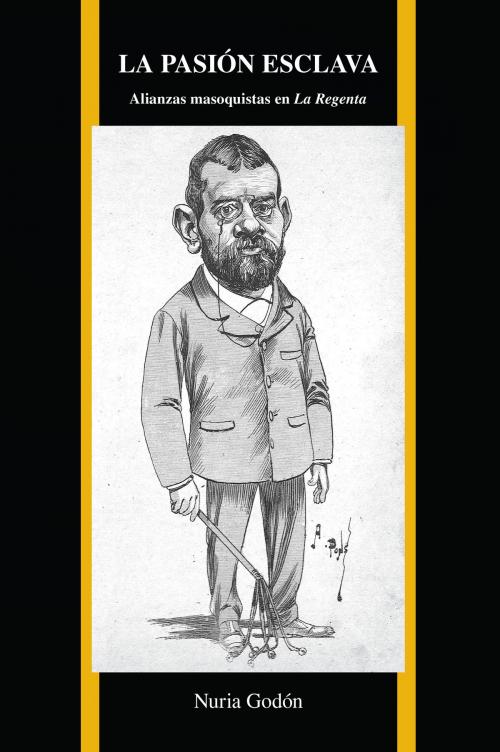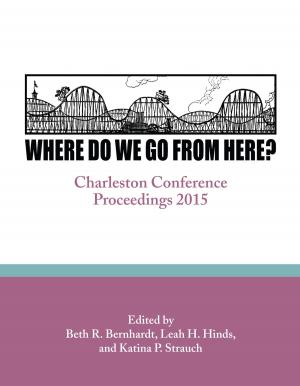La pasión esclava
Alianzas masoquistas en La Regenta
Fiction & Literature, Literary Theory & Criticism, European, Spanish & Portuguese, Theory| Author: | Nuria Godón | ISBN: | 9781612495187 |
| Publisher: | Purdue University Press | Publication: | November 15, 2017 |
| Imprint: | Purdue University Press | Language: | Spanish |
| Author: | Nuria Godón |
| ISBN: | 9781612495187 |
| Publisher: | Purdue University Press |
| Publication: | November 15, 2017 |
| Imprint: | Purdue University Press |
| Language: | Spanish |
La pasión esclava aborda la discursividad masoquista en La Regenta (1884-1885) de Leopoldo Alas, Clarín, como una estrategia subversiva de dominio y sumisión mediante la cual se rebaten los fundamentos del pensamiento liberal sobre la educación, la agencia y la libertad del sujeto moderno. Frente a las investigaciones que priman el enfoque psicoanalítico de tradición freudiana y vinculan el masoquismo a conductas perversas y pasivas, este estudio brinda una aproximación pluralista -donde destaca la perspectiva cultural, histórica-clínica y literaria- gracias a la cual es posible reubicar el masoquismo en el amplio terreno de las pasiones y subrayar la agencia y creatividad sobre las que se conforma el sentido discursivo del masoquismo transgresor en la narrativa finisecular. Nuria Godón muestra cómo la novela cumbre de Alas problematiza las propuestas de compañerismo en la sociedad moderna presentando una reformulación del contrato masoquista que parodia el contrato matrimonial, satiriza el contrato social rousseriano y cuestiona el engranaje del sistema educativo krausista. Asimismo, explora el impacto del catolicismo en la dinámica masoquista en otros textos de autores contemporáneos entre los cuales figuran Emilia Pardo Bazán y Armando Palacio Valdés, sin olvidar a Leopold von Sacher-Masoch-autor sobre el que se acuña el término de masoquismo-para explicar posteriormente cómo la influencia religiosa da forma al despliegue de la dialéctica del masoquismo femenino y filial en el contexto español trazado en La Regenta. En este sentido, La pasión esclava invita a una reconsideración del masoquismo como herramienta que hace saltar los mecanismos de sujeción genérica, susceptibles de ser observados no solo en el ámbito literario español que el libro presenta sino también dentro de otras producciones culturales.
La pasión esclava addresses the masochist discursivity of La Regenta (1884-1885) by Leopoldo Alas, Clarín, as a subversive strategy of dominance and submission through which the foundations of liberal thinking on education, agency, and freedom of the modern subject are refuted. Differing from studies that prioritize the Freudian psychoanalytic focus and link masochism with perverse and passive behaviors, this book offers a pluralist approach, where cultural, clinical-historical, and literary perspectives are essential to relocate masochism to the area of passions, while emphasizing the agency and creativity upon which the discursive meaning of transgressive masochism in fin-de-siècle narrative is articulated. Nuria Godón shows how La Regenta challenges the models of partnership in modern society by displaying a reformulation of the masochist contract that parodies the marital contract, satirizes Rousseau's social contract, and places the wheels of Krause's educational machine under scrutiny. Likewise, she explores Catholicism's impact on the masochist dynamic in other contemporary texts by authors such as Emilia Pardo Bazán and Armando Palacio Valdés, without excluding Leopold von Sacher-Masoch-the Austrian writer from whom the term masochism was coined-to further disclose how religion's influence shapes the dialectic of female and filial masochism in the Spanish context represented in Alas's masterpiece. In this sense, La pasión esclava invites one to reconsider masochism as a tool that tears apart the mechanisms of gender subjection, which are observable not only in the Spanish literary texts analyzed in this book, but also in other cultural productions.
La pasión esclava aborda la discursividad masoquista en La Regenta (1884-1885) de Leopoldo Alas, Clarín, como una estrategia subversiva de dominio y sumisión mediante la cual se rebaten los fundamentos del pensamiento liberal sobre la educación, la agencia y la libertad del sujeto moderno. Frente a las investigaciones que priman el enfoque psicoanalítico de tradición freudiana y vinculan el masoquismo a conductas perversas y pasivas, este estudio brinda una aproximación pluralista -donde destaca la perspectiva cultural, histórica-clínica y literaria- gracias a la cual es posible reubicar el masoquismo en el amplio terreno de las pasiones y subrayar la agencia y creatividad sobre las que se conforma el sentido discursivo del masoquismo transgresor en la narrativa finisecular. Nuria Godón muestra cómo la novela cumbre de Alas problematiza las propuestas de compañerismo en la sociedad moderna presentando una reformulación del contrato masoquista que parodia el contrato matrimonial, satiriza el contrato social rousseriano y cuestiona el engranaje del sistema educativo krausista. Asimismo, explora el impacto del catolicismo en la dinámica masoquista en otros textos de autores contemporáneos entre los cuales figuran Emilia Pardo Bazán y Armando Palacio Valdés, sin olvidar a Leopold von Sacher-Masoch-autor sobre el que se acuña el término de masoquismo-para explicar posteriormente cómo la influencia religiosa da forma al despliegue de la dialéctica del masoquismo femenino y filial en el contexto español trazado en La Regenta. En este sentido, La pasión esclava invita a una reconsideración del masoquismo como herramienta que hace saltar los mecanismos de sujeción genérica, susceptibles de ser observados no solo en el ámbito literario español que el libro presenta sino también dentro de otras producciones culturales.
La pasión esclava addresses the masochist discursivity of La Regenta (1884-1885) by Leopoldo Alas, Clarín, as a subversive strategy of dominance and submission through which the foundations of liberal thinking on education, agency, and freedom of the modern subject are refuted. Differing from studies that prioritize the Freudian psychoanalytic focus and link masochism with perverse and passive behaviors, this book offers a pluralist approach, where cultural, clinical-historical, and literary perspectives are essential to relocate masochism to the area of passions, while emphasizing the agency and creativity upon which the discursive meaning of transgressive masochism in fin-de-siècle narrative is articulated. Nuria Godón shows how La Regenta challenges the models of partnership in modern society by displaying a reformulation of the masochist contract that parodies the marital contract, satirizes Rousseau's social contract, and places the wheels of Krause's educational machine under scrutiny. Likewise, she explores Catholicism's impact on the masochist dynamic in other contemporary texts by authors such as Emilia Pardo Bazán and Armando Palacio Valdés, without excluding Leopold von Sacher-Masoch-the Austrian writer from whom the term masochism was coined-to further disclose how religion's influence shapes the dialectic of female and filial masochism in the Spanish context represented in Alas's masterpiece. In this sense, La pasión esclava invites one to reconsider masochism as a tool that tears apart the mechanisms of gender subjection, which are observable not only in the Spanish literary texts analyzed in this book, but also in other cultural productions.















